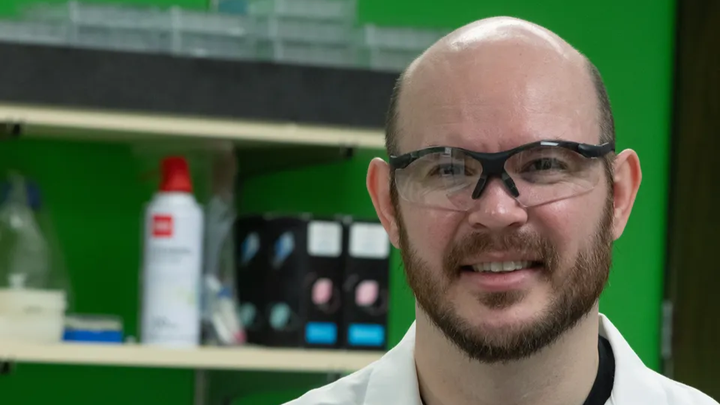
Help Stop Stomach Cancer Before It Starts
Help Us Prevent Stomach Cancer — Support Lifesaving Research
Stomach cancer is one of the deadliest cancers in the world, and it's most often caused by infection with a bacterium called Helicobacter pylori (H. pylori). Once the infection sets in, it can silently damage the stomach over time and eventually lead to cancer.
Our lab at Washington State University is working to stop this process before it starts. We’ve discovered new drug candidates that effectively kill H. pylori in the lab — and they show promise for being safer and easier to tolerate than current treatments, which many patients can’t finish due to harsh side effects.
But we can’t do it alone.
Anyone can become infected by Helicobacter pylori, and most have no idea. In fact, it is one of the most common infections, affecting 50% of people. The infection can go undetected until it is too late and stomach cancer develops. Help us move our research from the laboratory into the hospital clinic where these new drugs can become treatments for infections and prevent stomach cancer.
Your donation will help us:
- Advance our research to develop new treatments for Helicobacter pylori that can stop stomach cancer before it starts.
- Learn what dosages of these antibiotics are most effective for treating H. pylori.
- Test and improve the safety of our new antibiotics and reduce and eliminate side effects.
- Help us advance toward clinical trials and testing these new treatments in patients
Stomach cancer has a low survival rate, but it’s often preventable. With better antibiotics, we can stop the infection that causes it — and potentially save up to a million lives every year. These new treatments could also be used to treat and cure stomach ulcers, a painful disease that causes many to miss work, restrict their diets, and lose enjoyment in their everyday lives.
Every donation brings us one step closer to making that future a reality. Please consider supporting our research today.



The science behind these new potential drugs:
We started with a simple idea. How could we develop a drug that blocks an essential lifeline for the bacteria? We found the answer in a special type of protein that Helicobacter pylori needs to infect and cause disease. We studied this protein, which functions like a tiny machine keeping the bacteria alive, and learned how it works, what it's job is, and then invented a way to break it.
We searched vast chemical libraries to find one that could serve this purpose. The idea is that the drug binds the protein and stops it from working, leading to the death of the bacteria. In total, we tested over 4 million drug-like chemicals - these are a variety of compounds from natural sources, medicinal plants, trees from the rain forest, deep sea organisms, etc. In the end, we found exactly 6 that are effective at killing Helicobacter pylori.
So far, we have learned that this new type of anti-Helicobacter treatment is highly lethal to the bacteria, and can even kill types that other antibiotics can't. Take a look here at how this Helicobacter pylori taken from a patient grows fine in the presence of both the antibiotics ampicillin (left) and clarithromycin (right), but is fully killed by treatment with our drug at the same concentration (center).

Even better, this bacteria that is easily killed by our new treatment is one of the most carcinogenic types, possessing the oncogenic factor CagA. These types of Helicobacter are highly associated with causing stomach cancer. All signs point to that these new drugs are very promising and could completely transform the way we treat this disease. We also find that they are incredibly specific. They don't even kill other bacteria so they could potentially avoid damaging the health-promoting microbiota that live in our gastrointestinal tract.
But we can't just take these chemicals and start using them as medicines right away. We need to use chemistry to improve them, make them even better at killing Helicobacter pylori, thoroughly test their safety, and learn what the right combination is for dosage to treat patients (how much and how long). That's what your donations will help us accomplish.
For more details on the science, to learn more about our research team and what inspires our research, and to reach us directly, go to https://www.baylink-lab.com. On our website we will post regular updates on the progress of our new treatments and document our efforts.
Further information on the connection between Helicobacter pylori infection and stomach cancer can be found here: National Cancer Institute
Disclaimers:
The official beneficiary of this fundraiser is the Washington State University Foundation on behalf of the Baylink Lab. All funds raised will be directed through the WSU Foundation to support the Baylink Lab’s research efforts.
We adhere to all terms of service for GoFundMe and institutional requirements of state institutions. Funds are dispersed and used according to the policies of GoFundMe and Washington State University, and in accordance with local, state, and federal law.
Organizer and beneficiary
Riley Wolanzyk
Organizer
Pullman, WA
Arden Baylink
Beneficiary